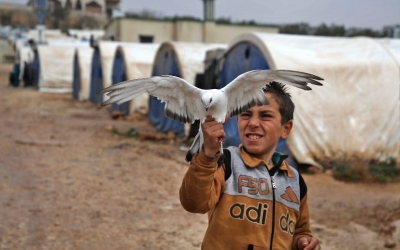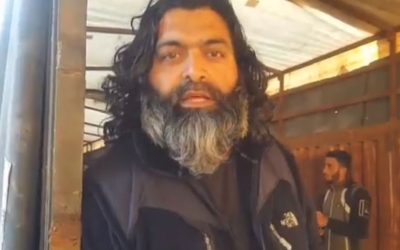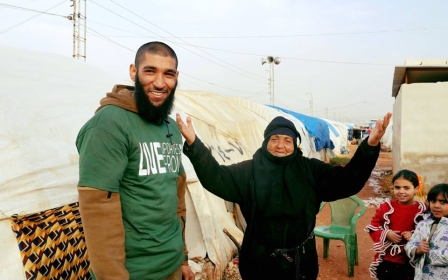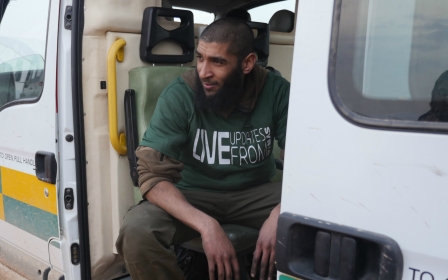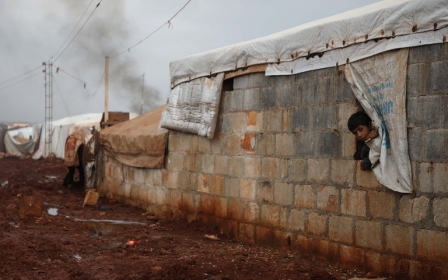Wave of IED bombings targets aid workers and ambulances in Idlib
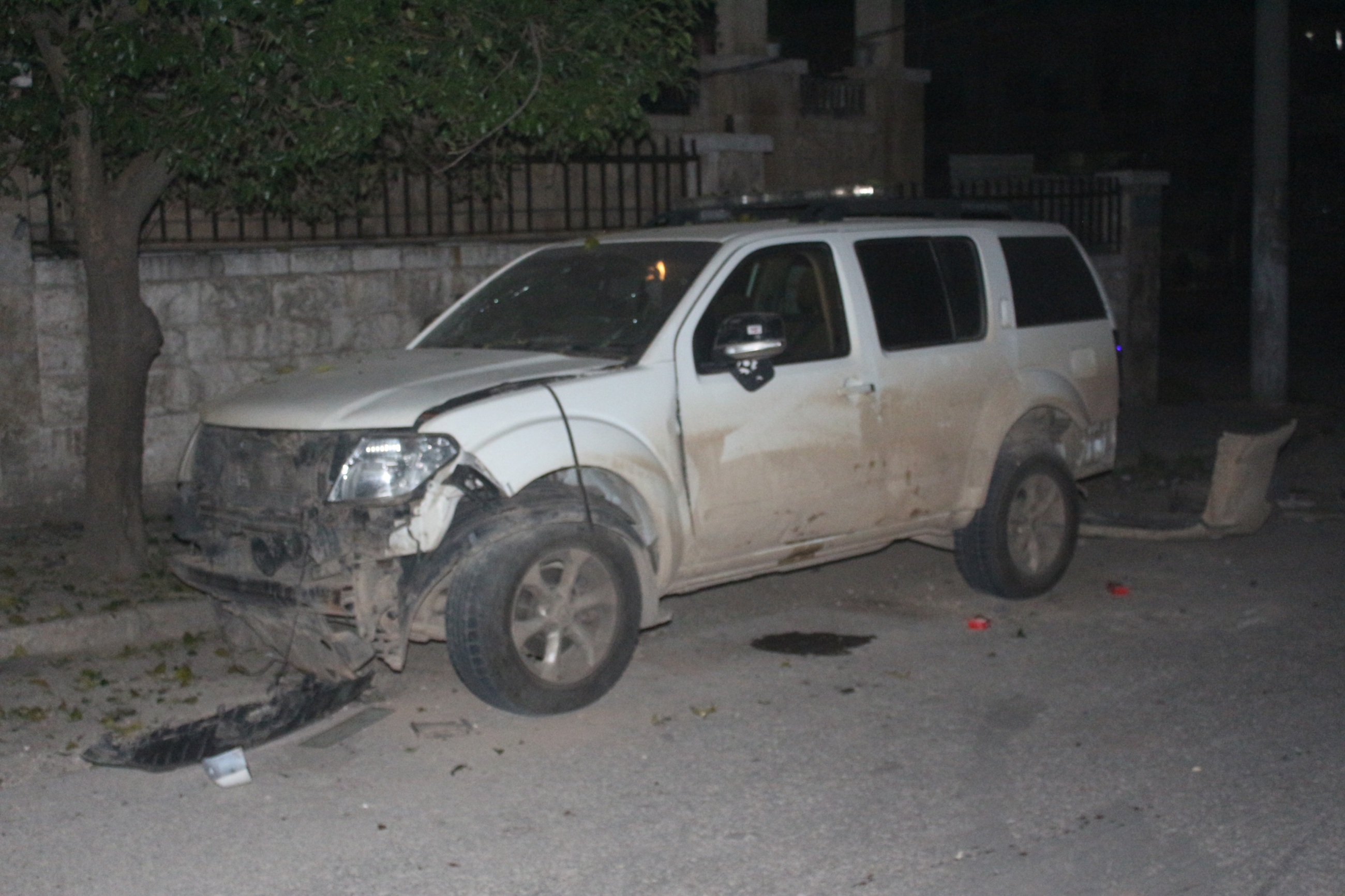
Foreign aid workers, medical volunteers and ambulances are being targeted in a wave of vehicle bombings in Syria’s opposition-held Idlib province.
In the latest attack in the Al-Thawra neighbourhood of Idlib City on Monday night, an improvised explosive device detonated as it was being placed under a car used by a British aid worker, fatally wounding the bomber.
Mohammed Shakiel Shabir, who has been permanently based in Syria for the past four years, told Middle East Eye he believed he had been the intended target of the bombing, following several attacks on vehicles used by medics and aid workers.
He said his car, a Nissan Pathfinder, was commonly used as a makeshift ambulance, and that two similar vehicles had been blown up in recent weeks.
Shakiel said the explosion happened after he had parked the car outside his house, where he was hosting several people at the end of the first day of fasting for Ramadan.
New MEE newsletter: Jerusalem Dispatch
Sign up to get the latest insights and analysis on Israel-Palestine, alongside Turkey Unpacked and other MEE newsletters
“I don’t normally park outside. I was just about to go downstairs to check the car when it exploded,” he said.
Shakiel said the bomber had been disturbed while he was planting the bomb under the vehicle, accidentally triggering the device, which appeared to have been detonated by a motion sensor.
Photos showed extensive damage to the front and rear of the car, and members of the Syria Civil Defence, commonly known as the White Helmets, at the scene.
“Somebody shouted at him and he panicked and set off the sensor. It blew both his hands off and his right arm,” he said.
The bomber died from his injuries several hours later. Shakiel said security forces had arrested another suspect who they believed was part of an Islamic State (IS) group cell responsible for a series of bombings in Idlib City.
The incident was the most recent in a series of IED attacks which have left at least one paramedic dead, another seriously injured and several ambulances destroyed, according to local reports.
Paramedic killed
In a video posted on Facebook on 1 May, Shajul Islam, a British doctor in Idlib, said that a member of an ambulance crew had been killed and another injured by an IED which exploded under their vehicle the previous day.
MEE understands that both members of the ambulance crew were foreign volunteers.
“Another day and another ambulance targeted by IED. In this war, sadly us medics are the first target,” Islam wrote in another post.
Islam urged those at risk to install metal plating in the foot well and under the seats of their cars to protect them from shrapnel, and also to install aluminium sheeting under their vehicles to make it harder to hide bombs in the chassis.
“It’s a very bad security situation right now,” Bilal Abdul Kareem, an American journalist in Idlib and a spokesperson for the Unity Project, an umbrella group representing civilian expatriates in the province, told MEE.
“This is the reality. You leave your car and there is no telling what will happen. That’s happened several times in the last couple of weeks to the foreign brothers that are here.
“You literally can’t leave your car. You have to check it for explosives.”
The attacks on foreign volunteers occur as Idlib also faces an aerial bombardment by Russian and Syrian government forces which has destroyed several hospitals, killed scores of people and displaced thousands more from their homes.
Shakiel, who often joins search and rescue efforts to pull survivors out of the rubble after air strikes, said he had been injured by the force of the explosion while responding to one such incident last week.
“I’m down a car now. But we’re still working, trying to provide food baskets for Ramadan. We are going to continue to work hard to show the people that we are with them,” he said.
Uncertain futures
Idlib is the last enclave of Syrian opposition-held territory, but it is now mostly under the control of Hayat Tahrir al-Sham (HTS), an alliance of militant groups containing factions formerly aligned with al-Qaeda.
It also a haven for millions of people displaced from other areas of Syria, as well as armed groups transferred to the area as part of deals to end fighting in other parts of the country.
Foreign nationals in Idlib face increasing uncertainty over their futures, and threats to their security posed by fugitives and criminal gangs from territory formerly controlled by the Islamic State group.
In February, Shakiel was rescued by HTS fighters after spending six weeks being held hostage by a criminal gang which had originally sought a ransom payment of $4 million for his release.
In March, a British national was killed in a suicide bombing at a restaurant in Idlib City which HTS officials said was carried out by an IS cell.
Many foreign nationals are also effectively stranded in Syria because of suspicion about their activities and the threat of arrest in their home countries.
Several British aid workers have been stripped of their citizenship, with the government accusing them of involvement in “Islamist extremist activities”.
British expatriates in Idlib could soon also face the threat of prosecution under a "designated areas" law, which makes it a criminal offence in the UK to travel to or remain in an area where the government deems it necessary to impose travel restrictions in order to "protect members of the public from terrorism".
Additional reporting by Harun al-Aswad in Idlib.
Middle East Eye delivers independent and unrivalled coverage and analysis of the Middle East, North Africa and beyond. To learn more about republishing this content and the associated fees, please fill out this form. More about MEE can be found here.



